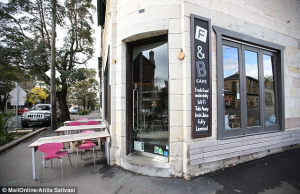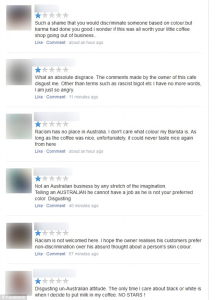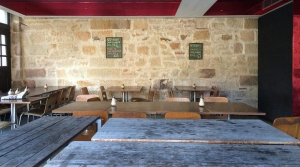In a time where integrated marketing is the norm, and where your average person is likely connected to some form of social media, it is more important than ever for organizations, big and small, to be aware of the implications of all their actions, whether or not they perceive it to have an impact on its marketing communications.
Earlier this year, in a city called Darlinghurst, which is close to Sydney, Australia, the owner of a café told a qualified applicant, who was applying for a role as a barista, that he would not be hired because, “my customers are white and they don’t like to have black people making coffee for them” (Back, 2014).
Immediately after his job interview, Nilson Dos Santos, publicly addressed the customers currently inside the café and asked them whether they would object if he was the one to make their coffee. The events to follow were incredible. Not only did all the customers leave immediately (Thackray, 2014), upon realizing what had just happened, but the press and social media went into overdrive, going into debate about this issue with everyone adding their own perspectives – employment law, citizenship and immigration, racism, freedom of speech, national pride.
Not more than a couple of months later, the owner of the café closed his business (Koziol, 2014).
Since the incident, Nilson received numerous job offers and is now currently employed as a barista at another café (Koziol, 2014).
Clearly, from an ethical and moral standpoint, the reasons for not considering Nilson for the job, were wrong. I would like to hear opinions on something else:
- Was there any way that the owner could have salvaged his business, by reacting swiftly with effective marketing communication strategies; and
- The organizations that flocked to hire Nilson may have done so with the intention of getting positive publicity by being the “hero” of the situation. Do you think this can come across as too transparent and, therefore, backfire for these organizations?
References
Back, A. (2014). Fair Work Ombudsman investigating cafe owner who would not hire man ‘because he is black’. Sydney Morning Herald. Retrieved September 20, 2014, from http://www.smh.com.au/nsw/fair-work-ombudsman-investigating-cafe-owner-who-would-not-hire-man-because-he-is-black-20140819-105unl.html
Koziol, M. (2014). Black barista Nilson Dos Santos finds work after being refused job at Darlinghurst café. Sydney Morning Herald. Retrieved September 20, 2014, from http://www.smh.com.au/nsw/black-barista-nilson-dos-santos-finds-work-after-being-refused-job-at-darlinghurst-cafe-20140828-109g0a.html
Koziol, M. (2014). Darlinghurst cafe owner shuts his doors after refusing to hire black barista. Sydney Morning Herald. Retrieved September 20, 2014, from http://www.smh.com.au/nsw/darlinghurst-cafe-owner-shuts-his-doors-after-refusing-to-hire-black-barista-20140826-108haj.html
Thackray, L. (2014). Shocking claims by a Sydney café owner. Daily Mail. Retrieved September 20, 2014, from http://www.dailymail.co.uk/news/article-2727063/Sydney-Cafe-owner-admits-told-Australian-citizen-job-black.html




5 Responses to “They don’t like to have black people making coffee for them.”